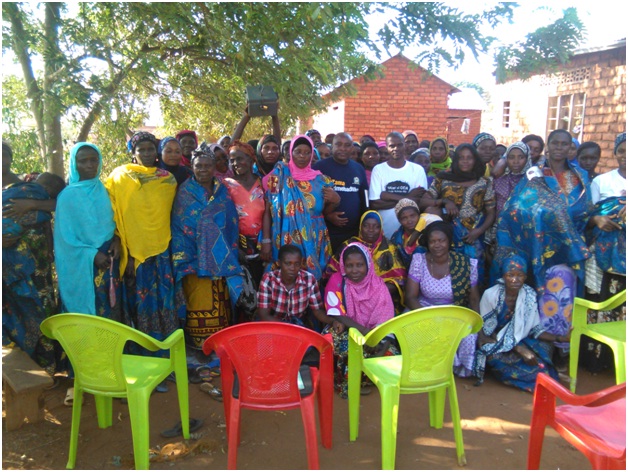ABOUT KACON

THE HISTORICAL BACKGROUND OF KACON
About KACON
Kigoma Aids control network (KACON) is a registered organization, operating in Kigoma region, at regional level, in the United Republic of Tanzania. It was set up on 09th June, 2004 and legally registered on 21st February 2005 with a registration number SO. No. 13013 under CSOs Ordinance of 1954 of the United Republic of Tanzania.
General Objective
The overall aim of the organization is to improve the quality of education (community awareness) through controlling of HIV/AIDS, Malaria, Family plan, nutrition, sanitation, hygiene, hand wash and waste management, and social health effects diseases which always cause problems to people.
General Functions
Building capacity of members of the organizations and community based organization.
Provision of technical supports to member organizations and Community Based Organization during project implementation.
Supports organization members in improving skills in project management, human resource management and resource mobilization.
Conduct research and intervention on different problems associated to health problems such as: HIV/AIDS, Malaria, family planning, TB, sanitation and hygiene, nutrition etc.
Advocating legal rights and strengthening duties of Civil Society Organizations in the field.
Conduct conflict resolution among community groups.
Conduct monitoring of activities and programs implemented by member organizations in order to ensure efficiency of services provided.
CSO Capacity building in Financial management, Fund raising and Proposal writing
The project objective was to equip the CSO’s members in improving skills in project management, human resource management and fund raising and resource mobilization. The project was funded by Actionaid in 2006 as a 36 million Tsh was provided to fund the project, the project life time was 1 year. A total number of 56 CSO’s represented by 336 trainees were attended the training. The project of equipping all CSOs members based in 4 districts Kigoma region.
Food for People Living with HIV/AIDS
The project was basically aimed at supporting people living with AIDS (HBC) to obtain nutritious food for their better survival. It was one year project, and it was funded by GTZ Tanzania as a total of 98 Million Tshs was provided. A total number of 806 beneficiaries in whole Kigoma region were adequately reached. The project helped a lot to improve health of people living with HIV/AIDS in Kigoma region.
HIV Act Of 2008
It was a one year project funded Foundation for civil society. It was aiming at provision of education to the community on HIV Act of 2008, basically on the reduction of segregation and stigma altitudes done by the community members towards the HIV infected person. The project came into place in 2012. The project cost was 45 Million Tshs. The project directly benefited about 400 people while indirect the project benefited about 1200 persons.
Communication Malaria Initiative in Tanzania
This project was funded by Population Service International (PSI). The project objectives were to fight on malaria prevention through provision of malaria education. The project was of three years from 2009-2011. The total budget was 65 Million Tsh. A total number of 455,400 people were reached by the program as they become aware of the causes and ways to prevent themselves and others from malaria. Project conducted intended to change behavior of the community members, where by CCAs were used to educate community members directly at the local level. The CCAs worked together with local leaders including, Ten cell leaders, ward executive officers and religion leaders. These activities were conducted in different areas as community groups, faithful institutions and different schools. The methodologies used were; public campaign, group discussion, debate, house to house visit, open mass campaign, seminars and presentation.
The topics focused to raised community awareness were:
The proper use of mosquito net.
The laboratory check-up before taking malaria tablets (not every fever is caused by malaria).
The proper handling of the mosquito nets.
Malaria prevention among pregnant women.
Early intervention of fever by consultation the physician as early as possible.